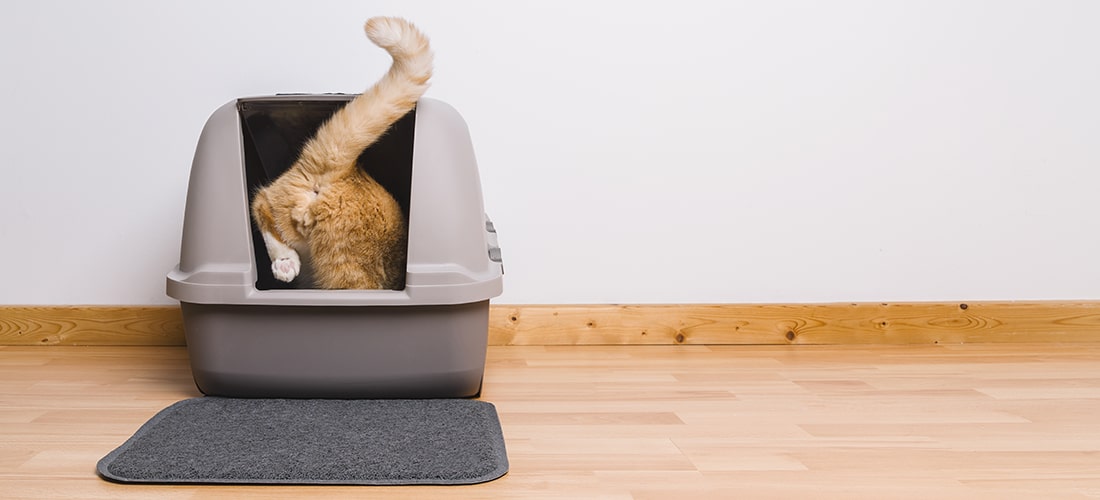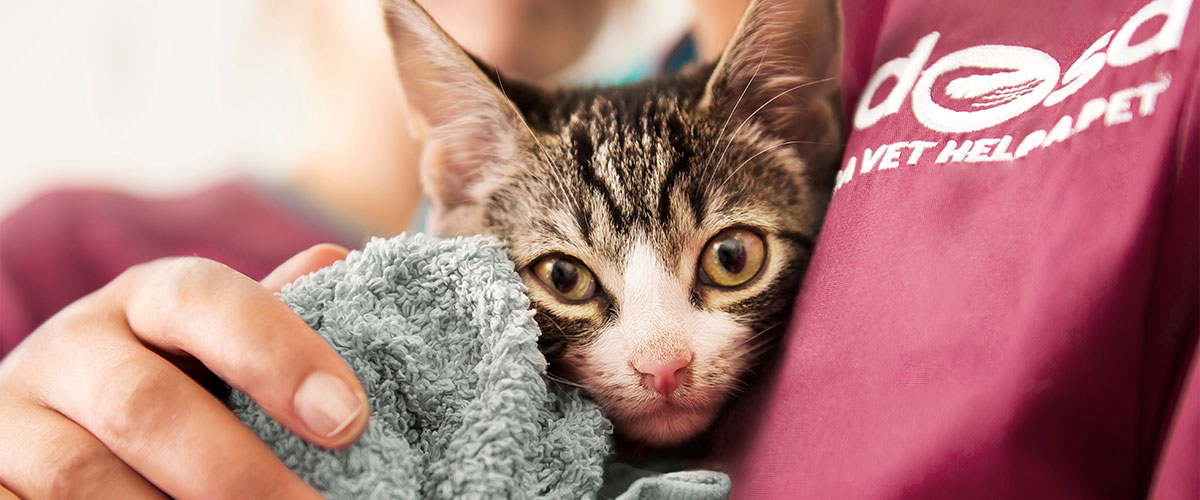Diarrhoea in cats
Overview
- Normal, healthy cat poo is firm and dark brown.
- Many different things can cause diarrhoea in cats, but fortunately, most cases can be treated easily.
- If your cat had had mild diarrhoea for less than a day, it may be possible to settle them at home, but you should always contact your vet if your cat has diarrhoea for longer than 24 hours, seems unwell, or has any other symptoms.
- In severe cases, or left untreated for too long, diarrhoea can lead to dehydration, and severe illness.
Causes
Common causes of diarrhoea in cats include:
- A sudden change in diet
- Eating something that upsets their tummy
- Worms
- Other gut parasites such as giardia, cryptosporidium and tritrichomonas
- Pancreatitis
Less common causes of diarrhoea in cats include:
- Gut infections such as Salmonella and Campylobacter
- Viruses such as Feline Panleucopenia Virus, Feline Leukaemia Virus (FeLV) and Feline Infectious Peritonitis (FIP virus)
- Poisoning/toxins
- Inflammatory Bowel Disease (IBD)
- A gut blockage
- Liver disease
- Kidney disease
- Cancer
How will I know if my cat has diarrhoea?
Diarrhoea can be tricky to spot if your cat mainly goes to the toilet outside, some of the more subtle signs include:
- Going outside more regularly than usual
- A dirty, smelly, sometimes painful bottom
- Gurgling stomach noises
- Farting more than usual
- A bloated tummy
- Excessively cleaning their bottom
- Lethargy (low energy)
- An unkempt coat
When to contact your vet
If your cat has had mild diarrhoea for less than 24 hours, but is otherwise fine (bright, active and has no other symptoms), you may want to try settling them at home before contacting your vet (see advice below). However, if he/she doesn’t improve within 24 hours, gets any worse, or develops any other symptoms (such as vomiting, lethargy, blood/mucus in their poo, or a painful abdomen) you should contact your vet for advice. Always speak to your vet if you have an elderly cat or kitten with diarrhoea because they are more at risk of becoming dehydrated.
Will my cat need antibiotics?
It’s rare for a cat with diarrhoea to need antibiotics, and in the wrong situation, they can even make diarrhoea worse (by destroying friendly gut bacteria). Instead, your vet may suggest other treatments such as probiotics and products that soothe the bowel such as ‘kaolin’.
Home care for cats with diarrhoea
If your cat has mild diarrhoea but is seems otherwise fine (has no other symptoms of being poorly), you might wish to try settling them at home with the advice below. Book an appointment if your cat gets worse or doesn’t improve within 24 hours.
- Feed small, bland, frequent meals - there is no need to starve your cat - instead, offer them small, bland, regular meals such as boiled chicken or white fish (without skin or bones). Alternatively, for convenience, your vet is likely to sell a tinned food specifically for upset stomachs. Don’t feed anything rich or fatty and call your vet for advice if your cat refuses to eat.
- Plenty of water - cats with diarrhoea often drink more to replace what they’re losing in their diarrhoea. Make sure your cat has constant access to water and encourage them to drink throughout the day.
- Rest - your cat might need slightly more sleep than usual while they recover, so it’s important to allow them to rest. However, if they seem excessively tired, or just aren’t themselves, speak to your vet for advice.
- Probiotics - probiotics help to boost friendly gut bacteria and absorb toxins in the intestines. Probiotics have been shown to help some cats but not all, and can be bought at your vets and online.
- Gradually reintroduce their normal food - once your cat is passing solid poo you can start to slowly reintroduce their normal diet over a few days.
Published: November 2020
Did you find this page useful?
Tell us more
Please note, our vets and nurses are unable to respond to questions via this form. If you are concerned about your pet’s health, please contact your vet directly.
Thank you for your feedback
Want to hear more about PDSA and get pet care tips from our vet experts?
Sign up to our e-newsletter
Written by vets and vet nurses. This advice is for UK pets only. Illustrations by Samantha Elmhurst.


